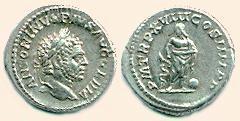
The Melammu ProjectThe Heritage of Mesopotamia and the Ancient Near East |
The Melammu Project
General description
Search string
Browse by topic
Search keyword
Submit entry
About
Open search
Thematic search
Digital Library
Submit item
Ancient texts
Dictionaries
Projects
Varia
Submit link
FAQ Contact us
About
The Newsletter
To Project Information >
Asklepios as chief physician (1) |
Printable view |
|
Topics (move over topic to see place in topic list) 05 Scientific knowledge and scholarly lore 05 Scientific knowledge and scholarly lore 05 Scientific knowledge and scholarly lore |
Keywords Asclepius |
|
Period Hellenistic Empires Roman Empire |
Channel No channel specified |
|
Summary
Bibliography
Links (external links will open in a new browser window) Asklepios (Greek Mythology Link) Robert Whiting
|
Illustrations (click an image to view the full-size version in a new window)
